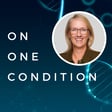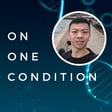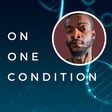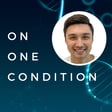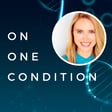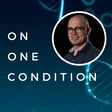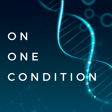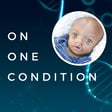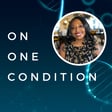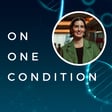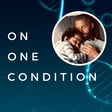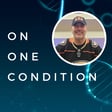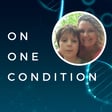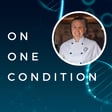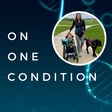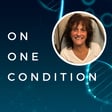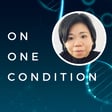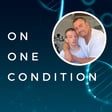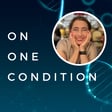Become a Creator today!Start creating today - Share your story with the world!
Start for free
00:00:00
00:00:01

Episode 48: Daniel DeFabio - Menkes Disease
In this heartfelt episode, Daniel opens up about his journey with his son, Lucas, who was diagnosed with Menkes disease, a rare genetic disorder. Daniel shares the emotional challenges, personal growth, and love that shaped his family's experience. He discusses the need to adjust expectations as a parent, from the small things like waiting nine years for Lucas to grab his finger, to facing the reality that Lucas' life would be short. The podcast touches on the emotional rollercoaster of caring for a child with a life-limiting illness, but also celebrates the joy Lucas brought to their lives. Daniel’s reflections are filled with warmth, sorrow, and lessons learned from his son’s light.
The song that Daniel chose is Starlight by Muse.
Transcript
Introduction to the Podcast
00:00:00
Speaker
Hi, I'm Sylvain Bertolo, and you're listening to On One Condition, a podcast to raise awareness about health conditions by listening to people who leave them every day.
Guest Introduction: Daniel Diflavio
00:00:11
Speaker
My guest today is Daniel Diflavio, and we're going to talk about his son, Lucas, and Menka's disease. Hi, Daniel. Thank you for joining me. How are you doing? Good. Thank you. I'm glad to be with you. I'm glad you're doing this work.
00:00:28
Speaker
Oh, great. Well, thank you. And we're going to talk about your work as well, which is very interesting, but in a bit. I love starting with a song, and I like the song you've selected.
Music and Personal Connection
00:00:41
Speaker
So could you tell our listeners which song you chose and why?
00:00:46
Speaker
Yeah, for the past few years, the song a Starlight by Muse has really touched me and felt ah personal. And i I know I may be reading more into it, but I feel it connects to the rare disease experience quite a bit. you know There's lyrics in there about um all I wanted is to hold you in my arms. And of course, that could be for a lover, but I think of it for my son and how that is um a bit like adjusting your expectations. you know You don't need to necessarily have your, as you might have thought, have your child go on to greatness. You just need to hold the simple level of that. right And then there's the next lyric that is our hopes and expectations, black holes and revelations. And I think that is, that's the rare disease experience too. You know you have to ah reassess your hopes and expectations because these moments of despair have
00:01:40
Speaker
put you on a different path. you know So I was fortunate. um We did a Global Jeans event where a musician was playing ah some songs and taking requests. And I requested this one. And he said, I don't normally play that one, but I i can see why you want to hear it. And he played it. And it just it was so touching. It was it felt so personal.
Adjusting Expectations: Emotional Journey
00:02:02
Speaker
That's nice. I love how music just helps you feel things and not everyone, like you said, will find the same meaning in the same song, but I love that about music. I would usually start with diagnosis, but um You've mentioned something about holding Lucas in your arms and having to, in a way, reset your expectations. ah Would you like to tell us a bit more about that? I think that's extremely interesting.
00:02:40
Speaker
Yeah, there's there's one kind of specific thing that you know I think any new parent loves that moment when a child grabs you know the little baby hand around the the finger, the index finger or whichever finger and and you feel that connection and because of Lucas's reduced muscle tone and muscle coordination, he was not able to do that and it felt To be honest, it was disappointing. It was heartbreaking that that that wasn't going to be part of my experience. Now, if I flash forward ahead about nine years, he was able to do that. But can you imagine expecting that of a newborn and not getting that experience for nine years? So along the way, that is just one example. But there were so many things that my wife and I had to
00:03:24
Speaker
sort of reassess, you know, this was our first, our first child, and you have your sort of typical expectations that they'll do this at this age and this at that age, and they'll go on to do these things that are all sort of the typical path of development. And then we were told, Oh, no, your child will not develop. Typically, your child, ah because of Menky's disease, will not sit unassisted, will not talk, will not walk, will not eat unassisted, all these things that you you expect, right? And for obviously there's there's a lot of layers to this. There's the managing of care and symptoms and and all the adaptation that takes. But for the parents, there's a mindset adaptation. There's a shift of, is it are we okay with this, right? are Are we going to let go of some of these dreams you know of a a typical path for a child to go through, right?
00:04:24
Speaker
Well, a lot to take on here. So how did you adapt then?
Finding Joy Despite Challenges
00:04:34
Speaker
What was the journey for you? Yeah. ah The biggest guide I think was Lucas himself. He was very happy, smiley. He had these bright eyes that um really shine. um That's actually another reason the song Muse Starlight, Lucas, the name we chose because of Luke Skywalker and George Lucas, so Star Wars things, right? And we didn't know till after we named him that Lucas
00:05:03
Speaker
means bringer of light and when you could see his eyes sparkling and shining like that it really felt like a good fit that he was a bringer of light to the world and bring of light to us of course so i mention that because in our darkest moments.
00:05:19
Speaker
he was happy. He was smiling for the most part. He certainly had his medical struggles and tough times. But compared you know to a typical person, I think he was happier than most. um And we could, during our tough times, look to him a bit as our guide and say, well, if you, Lucas, are happy, maybe we should take a pause and appreciate this moment as possibly a good moment with you and let you lead us in terms of a different life can still be a good life. And on the on an extreme end of things, you know, he was a bit of a, despite not really being able to communicate, certainly not with words, um he was a bit of a
00:06:08
Speaker
wise guy or a joker in that you know if we were to um bump our head on a cabinet or hit our thumb with a hammer, he'd crack up and laugh at us. And that seemed a little cruel of him in a way, but then it forces you to remind yourself, maybe that's not the biggest deal. I didn't have to curse that I just bumped my head. It's not going to It's not going to be the big deal that I thought it was and he's got it in a different perspective. So I really think looking to his mindset helped us change our mindset. I have to assume his mindset was more about the here and now. Am I happy right now? And it brings us to things we've all heard all our lives like live in the moment, don't worry about tomorrow, nobody's promised tomorrow, those kinds of things.
00:06:59
Speaker
but until um until you're pushed in that direction, you might not realize that's been age-old advice for a reason. you that um that Those little aphorisms that we we've heard so many times could actually be useful. You know you could implement you could implement them.
00:07:24
Speaker
yeah yeah Yes. and i It's interesting how happiness in itself in life is is defined on things that are not necessarily the essence of life. And what I'm hearing is that Lucas brought you back to what what the essence of life is and and how can and how this in itself can make you happy.
Discovery and Diagnosis of Menka's Disease
00:07:53
Speaker
I love that. Yeah.
00:07:55
Speaker
So I don't know much about Minkie's disease. Could you tell us more about how you you realized that Lucas has Minkie's and what it meant for him?
00:08:10
Speaker
Yeah. um lo Lucas was born a couple of weeks early with a skull fracture in the occipital area, which is the base of the skull. I mentioned that because there is a related condition to Minkie's disease, which is teenage onset. Teenagers will get something called occipital horn syndrome. So in hindsight, it seemed very odd that Lucas would have a break in his skull at birth in the same area where a related condition would it be affected. But a condition of Menkes is fragile bones so or brittle bones, so that could have been a factor. But none of these things at birth, certainly they were a concern and we spent the first 10 days of his life in NICU and he had all the specialists looking at him, including neurology. Yet, as rare diseases are so little known and understood even by doctors,
00:09:05
Speaker
no one No one took that moment and said, ah, we should be looking at a rare disease and we should do a genetic test and we should look for Menke's disease. so It was a year later that that would happen. And it was because um Lucas was developing more slowly and getting two milestones on a delay. And then at about eight eight months, um actually regressed on a milestone. And that was enough for us and some some of his therapists to say, you now need to look for a genetic diagnosis.
00:09:42
Speaker
And there we were a bit lucky. You probably know from so many other people's stories how long a diagnosis can take. We began looking, we saw Genesys in September and he had the answer for us in January.
00:09:56
Speaker
I believe he probably could have had the answer for us in December. He just wanted us to have a happy Christmas without this bad news. yeah um And he immediately, he knew probably be only because he had seen two other patients with Menke's disease. So that unlikely occurrence got us our answer much faster. He knew what to look for. He took a look at, Menke's disease is sometimes called Kiki Hair Syndrome.
00:10:21
Speaker
because the hair is twisted and brittle. and He looked at Lucas's hair where it would break away in the back of his head and he said, we need to look at a copper related condition. and Of course, I jump on Google after that and look at what are the copper related conditions and it's either occipital horn for teenagers, Menke's for babies, or Wilson's disease. and Wilson's disease has a much longer life span. Menke's disease, the prognosis is you'll live three to 10 years. so Of course, I was hoping the answer would be Wilson, but it wasn't.
Impact on Family Life
00:10:56
Speaker
Wilson also has treatments.
00:10:58
Speaker
um Menkes has a treatment. However, it needs to to be effective. It needs to start in the first 10 days of life. And again, Lucas was in a NICU for the first 10 days of his life. So we're in the right place at the right time with the right people. We just didn't know what disease we should be treating. And so at the age of one, when we did get the diagnosis, we were able to get Lucas in that clinical trial and he did get that treatment. But it's hard to know if it had any effect at that point um or if it was just sort of compassionate use and why not add another person to the study as another you know point of reference for data.
00:11:43
Speaker
It may have helped a bit. Lucas ultimately lived to be 11 and a half years old. We lost him in June of 2020. um So he beat the odds a little bit with the prognosis being three to 10 years. We got a little extra time with him. We'll always be grateful for that, but it's hard to know if the the therapy itself was effective.
00:12:07
Speaker
If you have one question, you you you may not have the answer to that, but how can you treat babies within the first 10 days, considering how long it takes to, first of all, get doctors to to push further than the the first signs?
00:12:29
Speaker
Yeah, so the answer there is two-part. For two-thirds of cases with minkies, it is a hereditary genetic condition. So they might know a family history. They might be prepared going into childbirth that we're immediately going to have to start this copper therapy because ah you know there's a genetic predisposition.
00:12:50
Speaker
um But for one-third of cases, it's a de novo mutation, which was the case in our family for Lucas. It's a spontaneous genetic mutation of the ATP7A gene. And that group
00:13:05
Speaker
leads us to the need for newborn sequencing. that A lot of people say, well, is there a newborn screening for this? And yes and no. Yes. um If you do a genetic test, no. The standard blood drop heel prick test, that um blood analysis isn't going to be enough to detect minkies. So you have to go to the genetic testing, which in 2009 was more expensive and less common.
00:13:33
Speaker
Today it's it's a little less expensive and a little more common and we're seeing more efforts with different programs to say Let's let people opt in for genetic screening whether they have any reason to believe a need for it or not And I I'm a big advocate for that that would have that would have saved Lucas's life because those that get the treatment in that window they live beyond teenage years into 20s or 30s and you know you would they still have some symptoms, but they're much milder, manageable symptoms. These are ah kids, always boys, almost always boys that go on to play sports or play instruments or graduate high school or you know do more of the typical things, perhaps with their own complications, but not the devastating, debilitating condition that Lucas was in.
00:14:27
Speaker
yeah Yeah, literally life changing. yeah So what was your the impact that it had on on you then, this diagnosis, knowing that it would have a prognosis that wasn't very positive for you?
00:14:50
Speaker
ah it It changed everything. I think for a while we were probably a little emotionally paralyzed by it. um We had to sort of crawl our so way out of the darkness there and yeah somewhat the urgency of the moment will um will carry you through. You're going to be very busy with the emergency medical needs and the the sort of hypervigilance and all the care and in some ways you can just keep focusing on the next small step and and and you're not as concerned with the bigger picture in the long term, um but that looming moment that the whole time with your child is
00:15:35
Speaker
limited. I mean, we all know everyone could go at any moment, but now you've been told your child is very likely to go in the next 10 years. It's life changing for sure. it I mean, there are slight positives to it where you you don't delay. You don't put off till tomorrow. if you can If you can create a great moment with your son today, you try and you try to do that.
00:15:59
Speaker
um It also takes us out of the realm. you know we're We live in the United States and have a decent income and have access to some privilege. and makes you aware of what first world problems mean because you now have an existential problem in your staring you in the face. That is, are we going to be able to keep our child alive and for and for how long? you know um And then as we maybe matured in our mental attitudes, we started to realize for how long is not the most important question because the quality of his life mattered more to us than the quantity.
Balancing Work and Care
00:16:40
Speaker
if we knew the quantity was going to be short, the quality was more important. That's a very important life lesson here. Yeah. Yeah. So how did then, how did you manage carrying on with life or the expectations of life's work and so on, yeah considering you were caring for Lucas as well. Yeah, um yeah was ah it was a tricky balance. um For me, I was my own boss running on a small marketing agency, so I could adjust my schedule. you know so and I worked from home way before the pandemic made that more common.
00:17:30
Speaker
um so you know, at the risk of earning less money, I could do less work. I could, you know, push things off into the wee hours of the night if I needed to, you know, change my schedule. And that meant that when the call from school, when Lucas was school age came, when they came very often of he's not doing well, he needs to go home, or he need worse, he might need to go to the hospital, I was available to jump in the car and go get him or you know, handle that and adjust my schedule. So that was one bit of flexibility that worked in our favor. We did qualify for home nursing care. So eventually we had a nurse
00:18:13
Speaker
as part of our life for about 40 hours a week. And so from the moment Lucas got home from a school day to the moment he went to bed, there would be a nurse there in our house and it's somewhat small house and it's kind of intimate. We were a family of four by then and here's this fifth person.
00:18:32
Speaker
ah Fortunately for us, she was she was wonderful. She fit in well with us as weird as we are. She seemed to be equal to be willing to be equally weird with us, you know, and um yeah, and it it was in some ways very charming and and comforting. But in other ways, it's an intrusion and it's not the life you thought you wanted. Yeah. Yeah, I can imagine that. What kind of care did Lucas need?
00:19:00
Speaker
Yeah, boy, a lot. And in fact, I didn't even realize it myself. As I mentioned, you kind of get caught up in the taking things as they come. ah But at one point, I wrote down his care schedule so that I could possibly give it to someone else if they were going to babysit or something. And I realized there was no window longer than three hours where Lucas didn't need some procedure, be it his food tube, his catheter, his meds, which had to come in through tubes. So if it wasn't a medication that was meant as a liquid, we'd have to stir it into a liquid or, you know,
00:19:35
Speaker
And so when you see that written out, you realize whatever else I'm going to fit in my life, whether it's my work or some social obligation, it's got to fit in these three hour windows or, or I've got to be able to work Lucas's care into the equation. You know, so ah simple things. And I know so many rare disease parents talk about this, you know, if you get invited to the cocktail party down the street or something, you're like, well,
00:20:03
Speaker
Can it be between these hours? Can I bring
Social Isolation and Support
00:20:05
Speaker
my child? If I can bring my child, is there a wheelchair ramp? Is there a room where I can do a diaper change? And boy, you know just a simple thing like the intensity of care is similar to babies that are younger than nine months, right? All that. For example, it's ah it's a very minor point, but changing Lucas's diaper for 11 and a half years as he gets to be about 70 pounds, right? Just the mechanics of lifting someone's butt when they weigh that much. You know, um I developed back problems. My wife did too. it There's a lot to it and it it was a
00:20:46
Speaker
um There's an expression sometimes people say just because you can carry it doesn't mean it's not heavy. So I hope we looked decent to the outside world like we had our act together, but we were always just shy of some breaking point. you know One more little problem would send us over the edge. you know It's crazy. I don't think people realize the intensity of looking after ah Lucas in in in your situation. It's difficult to relate to it. I don't know if you experienced that yourself in terms of not necessarily society expectations, but like your friends and your family around you, did they understand? Were they supportive?
00:21:33
Speaker
somewhere, some weren't. that I often say you will find in this lifestyle that some of your friends step up and some of your friends step away. And and most don't understand until hopefully you are able to make them understand, right? it's It's just foreign territory. And for some, the idea of child mortality is just so off-putting that they can't, they can't embrace it and therefore they might stay away from you and your family because you're too much a reminder, especially with a genetic fluke. You know, you could say it can happen to anyone. Well, if it can happen to anyone, it could happen to me, could happen to my child, and that I understand is so off-putting for so many. But those who are able to be there for you make all the difference. and
00:22:22
Speaker
we found or I found that your people may not be the people you expected. It may not be the lifelong friend. It may be this brand new friend because they too have a special needs kid or a mentally complex kid or a rare disease child. And those people, we instantly have a shorthand with each other where we can connect and we can skip over some of the the basic hard conversations because we already know some of each other's life experience or we can go right to the darkest topics or you know there's all these shortcuts in our interactions with each other that really. Make a difference yeah yeah and i imagine that it's important to have people who can relate to what you're going through.
Communication and Simple Joys
00:23:11
Speaker
Do not feel isolated.
00:23:13
Speaker
Yes, that's that's the big part of it is how isolating it feels socially among your friends and peer groups and they're going on, if they have children at the same time, they're going on a different path and it's the path you thought you would be on. so you can be You can be envious or or resentful and they can be cautious. you know They don't want to brag that their kid just got all A's in first grade when your kid can't talk yet. you know or ah They're worried about saying, oh, it was really tough for us when my kid had the flu when they know you've got this genetic disease that's worse than the flu. you know what So there's some recalibrating of your interactions with your friends that happens, I think. And the isolation isn't just social. it's You get isolated
00:24:01
Speaker
in the medical system. you know The medical system wasn't built for these edge cases. It was built for things like common cold and broken arms. And you know then you find your world upturned that, what do you mean? There's there's not an answer from this doctor. And like, OK, if there's not an answer, then I'll go for my second opinion. Then there'll be an answer. And you go for third, fourth, fifth, seventh, 27th opinions, and you still don't have an answer. That is a sense of isolation, too.
00:24:31
Speaker
Yeah, I can imagine with a rare diseases, you don't fit in any boxes in a way. Yeah. So how did you communicate with Lucas? How did you know what he needed? but What was it like? Yeah, the communication was um very limited or it was limited to Basically, he had happy expressions and unhappy expressions, and and they could be a grunt of dissatisfaction, and they could be a laugh of joy. And that was almost it. There was, you know through school, there was definitely an effort to have him use eye gaze, make yes, no choices, and they would
00:25:20
Speaker
um they would tell us he was pretty good at that. And then we'd get into the home situation and we like, maybe we weren't as patient as they were, or maybe they were overestimating his ability, but it wasn't it wasn't reliable enough that we could that we couldn't consistently ask him yes, no questions and count on getting an answer. And another bit I had to learn too, I think is you hear developmentally delayed and you think,
00:25:49
Speaker
months behind a typical kid, right? But I think there was also a type of delay that was just ask a question and it will take three minutes to get your answer. And and that may not have been exactly true, but there were times where it felt true and you can imagine there's a whole bunch of times where you don't really have three minutes to wait for an answer. you know And so we really more gauge things on, does he seem happy or unhappy? And what can we do about that? you know if If he's unhappy, can we change his position or can we ah you know get him more water or food or ah give him a different activity? or you know
00:26:33
Speaker
is there it It sounds terrible, but there were so few options with Lucas. There were so few variables that we could make improvements on. So we were really just trying to respond to at that level. Is he happy? Could he be happier? Can we do something about it right now? you know There were a few small joys that he had that um For example, going outdoors when there were power lines overhead, he'd love to look up at the power lines for some reason. And then as he got a little older, if I would be a bit of a daredevil with him in his wheelchair, taking him up skateboard ramps in a wheelchair, he would he would love that. Now,
00:27:13
Speaker
you can imagine, you're not always able to go out to the skateboard park with your child in the wheelchair. So you have to mix what you know might make him happy with what you could do on a given moment.
Advocacy through Storytelling
00:27:28
Speaker
I'd like to change subject a bit, related subject, obviously, because I know it opened your eyes to the world of rare diseases. I understand that.
00:27:41
Speaker
led you to go on and work in the rare disease community. Would you like to share a bit more about what you do? Yeah, absolutely. I now work at Global Genes full-time. and Global Genes is an organization for rare education and advocacy training and ah across all rare diseases, regardless of which particular rare disease.
00:28:07
Speaker
and having come from a background in filmmaking and in telling Lucas's story in a film and founding a film festival for rare diseases and I created the disorder channel which shares rare disease stories. I as part of my global genes role will encourage others to tell their story and lead storytelling workshops on how to if you choose to tell your story publicly whether that be a blog a podcast or A lot of my focus is, do you want to make a short documentary about your rare disease? We can train you for that in a very low budget, no frills kind of way. So it's not, not intimidating. Like I need to hire a movie crew. Um, and so that program has been going on for about four years in cooperation, both global genes and the disorder channel.
00:28:55
Speaker
ah and produce some wonderful films and and gotten people more comfortable to sharing their story, which I really feel is probably step one on a journey which can lead you to find your people when you share your story, can help end the sense of isolation. And there'll be these unintended consequences where people will find you because your story is out there and they may say,
00:29:18
Speaker
I'm working on something similar, I might be able to help, or I know the next person you need to talk to, or the researcher, and I have a different disease that I'm concerned with, but the researcher we're working with would probably be interested in your disease too. Any number of those things is more likely to happen when you get your story out there. um And so we just ah put together as a result of these, usually these trainings are a Zoom virtual meeting.
00:29:47
Speaker
a couple of times they've been in person trainings. And just last month we released a toolkit, which is a 30 page guidebook on how to do this. So I can share that link with you later if you're interested, or if you think the listeners of the podcast would be interested.
00:30:05
Speaker
It walks you through the basics of not just filmmaking, but rare disease documentary filmmaking. And and it does also apply somewhat to storytelling that's not going to be on video. you know If you're verbally telling um maybe your government representative your story or even your family members or your friends that might not understand your story, it helps to have your story a little bit more in focus and know the point you want to make before you get there.
Creating Community and Awareness
00:30:32
Speaker
All those kind of lessons are in the toolkit.
00:30:35
Speaker
I think that's wonderful that you you applied something you knew to the rare disease world. And especially with rare diseases, there is a need to share more, to raise awareness, to to make people understand what it is, what it's like. ah But also, like you said, find other people who may be in the same situation or who may be able to help. I love that.
00:31:05
Speaker
Do you know how many videos you've done so far? Well, on the disorder channel, we now have a collection of over 250 different short, not all short, sometimes between three minutes long and all the way up to feature film length, so 90 or more minutes long. ah And through the program with Global Genes,
00:31:25
Speaker
In the early years, we we didn't see too many people actually take the workshop, and therefore not too many people made the film as a result of the training. But this year I was very pleased. We had 129 people take the workshop in February, and about 22 of those people made the film, ah a film, made their film.
00:31:43
Speaker
and we We evaluated about 12 of those to be what we considered finalists and then we got it down to a list of three that we screened last month at our event. So following each keynote speaker was a 10-minute film produced through this workshop and then that filmmaker who and is either the rare disease parent or patient or ally or advocate and that filmmaker got up and said a few words to our audience after their film. It was very impactful. And either we've we've grown into our success or the the movement has found us, but the but ah momentum seems to be in our favor that more people are interested and willing to tell these kinds of stories. And I i think it another aspect of why it's important
00:32:33
Speaker
what I looked at in 2009 as the information landscape on Menke's disease, as I'm Google searching away, it was just medical papers. If you had read 26 pages on Menke's disease, you would read everything there was. And it's black and white, hard cold facts,
00:32:51
Speaker
dire prognosis. There's no good news in it, right? And I didn't want to misrepresent that there is good news. I didn't want to change i alter the facts of the case, but I did think that showing story and the reason my it's not just my son's story in that film, Minkie's Disease, Finding Help and Hope, it's two other boys that also have Minkies because I wanted to suggest that this is not an outlier one-person story. This might hear some commonality across boys with Menke's disease that you will still, despite the bad news, have joy in your life with your child. And you can put both things together. And I know when you're newly diagnosed, it doesn't feel that way.
00:33:36
Speaker
So I wanted there to be another Google search result that would be this film that would say, yes, all the bad things are true and there's great joy to be had. And when the diagnosis says fatal, it doesn't mean fatal tomorrow. So what are you going to do with the time between now and
Reflections on Advocacy and Community
00:33:57
Speaker
then? Yeah.
00:33:59
Speaker
That's very nice. We will put links to relevant websites or locations to find videos on the on one condition websites. I'm sure people will be interested in that. and So you you mentioned ah Festival for Rare Diseases. Is that where you had the ah kind of award ceremony or ah it A bit two different things. Disorder of the Rare Disease Film Festival never did awards. We did screen a lot of films. We just felt there was um
00:34:38
Speaker
It was maybe questionable to say one story was more important than another, so we avoided awards. But the Global Genes event, which is the Week in Rare Rare Advocacy Summit, also includes a Champion of Hope Awards, which is um it's not about their filmmaking. It's about their advocacy work. And different categories of advocates are honored there. And I was pleased to be among the Global Gene staff that was presenting some of the awards. So it was quite remarkable to see all the work that gets done here and and it's humbling too. No matter how much work you may personally do, there's there's someone else out there that's moving bigger mountains and and thank goodness for them, but yeah.
00:35:25
Speaker
Yeah, yeah, I completely relate to that. And a it's amazing. We talk about community in the rare disease world, but it feels more like an army at times that there are so many people doing so many different things. And every single one is important and helps make progress. I love that.
00:35:46
Speaker
Well, what an interesting discussion and we went through a lot. I've learnt a lot from you. I'm amazed by what you're doing and and the the impact it has on the rare disease community. That's brilliant.
00:36:06
Speaker
ah But I think what will stay with me for a long time is one sentence that you said, a different life can still be a good life. And I completely agree with that. And I wish everyone could could realize that because I think it would lead to a much better world. yeah So thank you so much for your time. And yeah, carry on what you're doing. It's amazing.
00:36:34
Speaker
Thank you. Thank you so much for having me on and talking about it.
